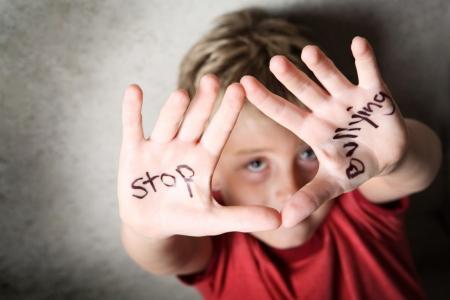
It was the 1950s in Atlantic City’s Stanley Holmes Village, and the Jones home was frequented by police and often filled with screaming, violence and fear, pressofatlanticcity.com reported.
Marcus’ father, Frank Jones, would abuse her mother, Mary, both physically and emotionally, almost daily.
Valeria witnessed the scenes from the staircase or behind a wall.
“At home, it was terrible,” she said.
“I didn’t really want him to die, but I just wanted him to go away.”
Domestic violence hurts not just those directly involved but family members as well.
And when those family members are children, they can bear the scars of abuse for the rest of their lives.
One in 15 children in the United States is exposed to domestic abuse at home each year, and national reports show 90 percent of those children are eyewitnesses to the violence.
Experts say that exposure can lead to short- and long-term negative mental, emotional, behavioral, social and physical effects, which could become worse over time if the child does not get counseling and treatment.
“They may experience self-blame, thinking, How could I have protected my mom?” said Naomi Jones, a psychologist who specializes in childhood trauma.
“These are unrealistic thoughts about what happened that they are placing on themselves.”
The first signs of trouble in Donna Andersen’s marriage were subtle.
Children who witness physical, emotional or verbal domestic violence growing up are twice as likely to abuse drugs or alcohol, six times more likely to die by suicide and 74 percent more likely to commit a violent crime, according to the Childhood Domestic Violence Association.
Marcus' father not only abused her mother, he also abused Marcus and her sister — physically, emotionally, verbally and sexually, Marcus said. A few times, she said, her father ran after her with a knife.
“I wish I never met him,” she said. “He not only ruined my mother’s life, he ruined my sister's and my lives, too.”
Marcus, 63, has channeled her childhood experience to help others who have experienced abuse. She now lives in a one-bedroom apartment on Mediterranean Avenue that’s adorned with photos of her mother, only a five-minute walk from where her childhood, which she described as ‘traumatic’, had unfolded.
Karen DeRosa and Jennifer Valentine, directors at Court Appointed Special Advocates for Children of Atlantic and Cape May Counties, said about a quarter of child cases they handle involve domestic violence, but often include other issues such as child neglect and drug use.
“Domestic violence isn’t just one level. There are so many different factors at play,” DeRosa said.
“There are a lot of consequences for the kids and their home life, the violence may become normalized behavior to them.”
Jones said childhood domestic violence victims are more likely to develop behavioral issues at home and at school, such as aggression and irritability, as well as issues with relationships later on. They are more at risk of developing post-traumatic stress disorder and other mental health issues, both as a child and as an adult.
Children can also feel helpless, manipulated, isolated and embarrassed, because they don’t know whether it happens in other families or households, experts said.
Watching and surviving abuse didn't come without scars for Marcus. It's affected her entire life, as she said she has struggled with depression, sleep disorders, anxiety and has had trust issues and fear in the past.
When she was young, Marcus said she felt as though she had to hide her emotional and physical scars from others, keeping them a secret. She said she ‘made it her job’ to stay at home and stay loyal to her parents, even her father.
There was little hope for her to report what was going on to law enforcement, she said, as police dismissed instances when she declined to elaborate on the abuse. She also was afraid of what her father would do.
